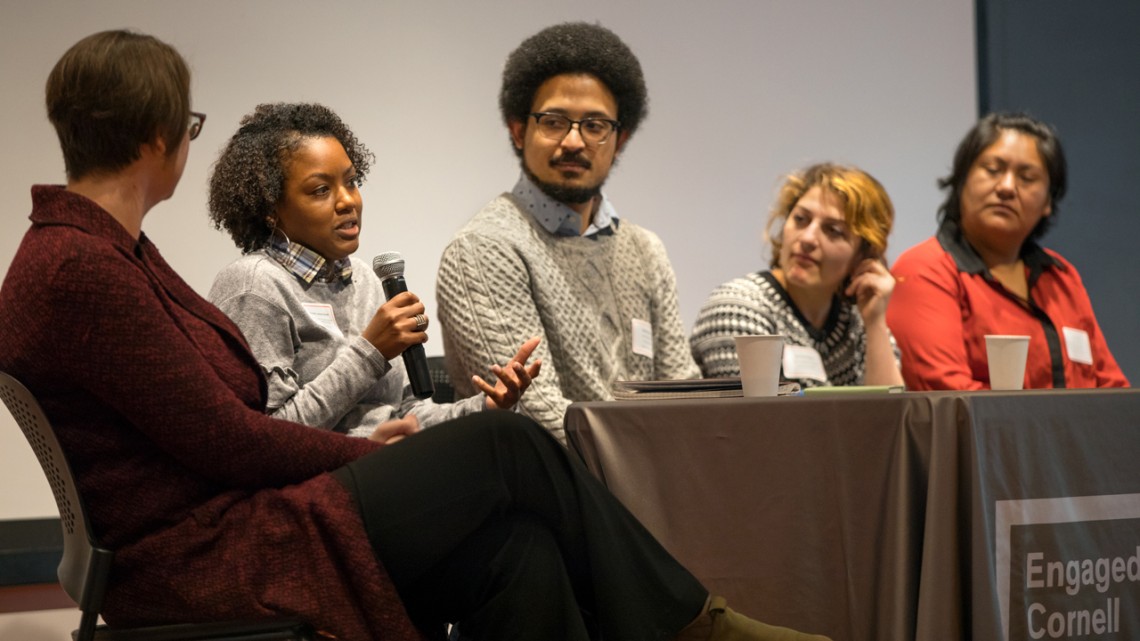
The key to successful community engagement is relationship-building, agreed panelists at the Community Engagement Staff Institute Jan. 25 at the Biotechnology Building.
But, they noted, relationship-building is long term in nature, requiring trust built up over time. How can students successfully engage with local organizations when they are here for only four years or work briefly in the community to complete a class project? How can those who work with students on community-based initiatives help students build trust with that organization, learn from their interactions and, as a result of their engagement, learn how to create change and become global citizens?
Those were some of the topics addressed at the workshop, which was attended by about 85 staff and faculty members from schools, colleges and administrative offices across campus. The panelists were current and former local community organizers: Cornell civic leader fellows Rafael Aponte and Fabina Colon; Mané Mehrabyan ’17, postgraduate program coordinator for student leadership in the Office of Engagement Initiatives (OEI); and Rochelle Jackson-Smarr, OEI’s associate director for student leadership and program manager for student success programs in the Office of Academic Diversity Initiatives.
Moderator Amanda Wittman, associate director of community-engaged curricula and strategy at OEI, began the discussion saying community engagement has four elements: promoting reciprocity and mutuality, where all stakeholders benefit; valuing all forms of knowledge, rather than assuming any one person or group has all the answers; building students’ critical reflection skills to enhance their learning; and creating public benefit.
Creating authentic relationships not only takes time, but takes an acknowledgement of the power dynamics at work, said Aponte. In the case of student projects, it is important both sides recognize the short-term nature of the project, expectations are managed, and all parties are satisfied with the outcomes, he said.
It is also important to recognize that shared identities can be different from shared interests, said Mehrabyan. “Are we members or allies of a community?” she asked. “Are you building ‘with’ someone or are you building ‘for’ someone?”
Colon noted the importance of orienting students to the local community when they first arrive on campus, so they feel like they belong to the community and become stakeholders in it. Those who introduce students to the community will inform their mindset and perspective, she said.
Jackson-Smarr described the pre-engagement activity OEI offers to help their students understand the impact of their interactions with local organizations, emphasizing that the students are brand ambassadors of Cornell and their program, she said. Students need to know that their actions affect the long-term relationship of Cornell to those organizations and the work of future students with those organizations, she said.
She said OEI has resources and tools to help those working with students structure community engagement initiatives for success. Also, as part of the Cornell Student Experience Initiative begun last summer, a website that gathers information about Cornell research, study abroad, community engagement and off-campus learning about opportunities will soon go live.
Richard Kiely, senior fellow in OEI, discussed how to develop students’ critical reflection skills, so they learn from their community engagement efforts and can develop an approach to engagement they can use in the future.
Workshops were devoted to skill-building: framing short-term projects; evaluating engagement programs; and building engaged leadership skills.
This article is written by Nancy Doolittle